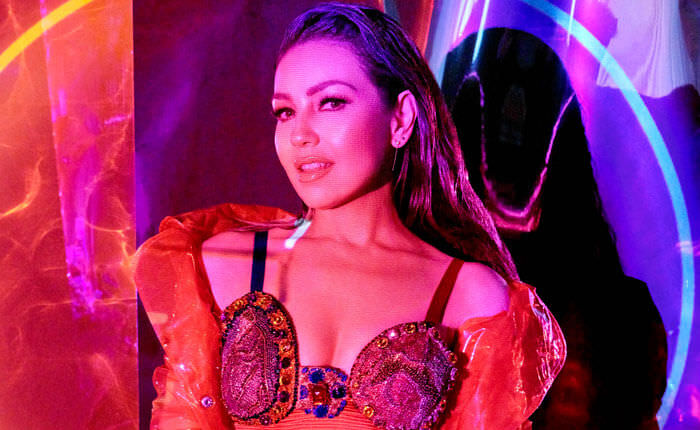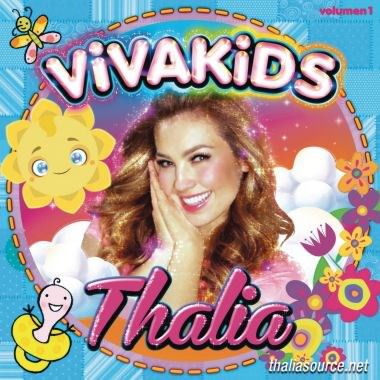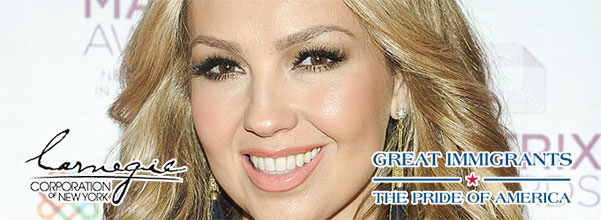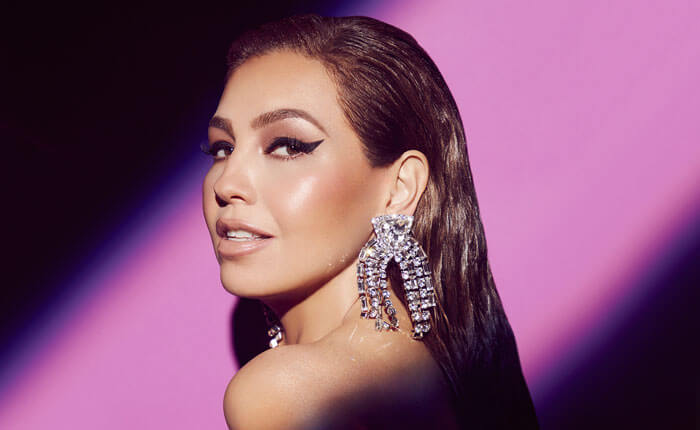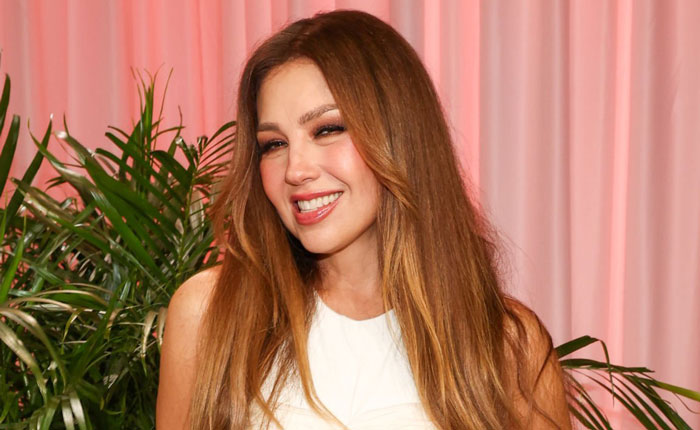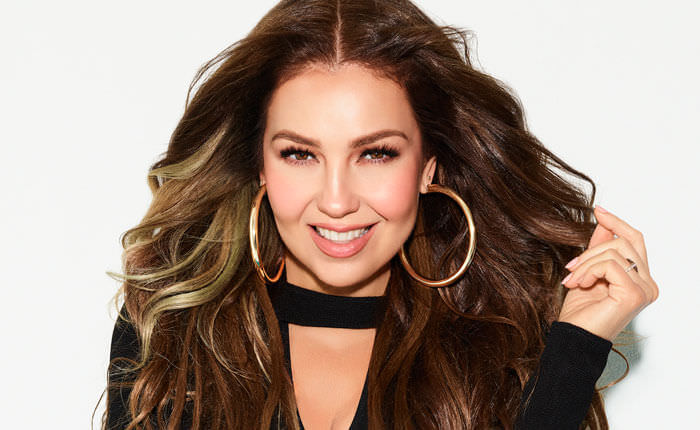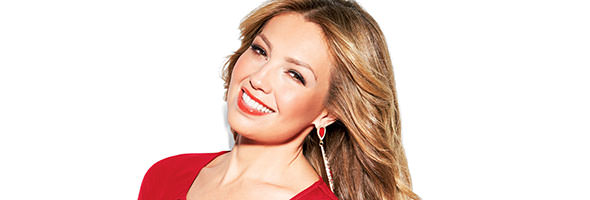For many, love could be limited to those love affairs that a lucky few manage to find. But for the Mexican singer and artist Thalía, love goes beyond the profile of a few affections between two people. And it is, without a doubt, much more than that. Love can also be an internal journey and even face episodes of heartbreak and love frustration.
And that is precisely what her new album desAMORfosis revolves around: in the love of a couple, in the crossings after a breakup, but also in self-love accompanied by rhythms from pop, reggaeton and even bachata.
Her new album - entitled desAMORfosis - has 14 songs in which she collaborates with artists such as Puerto Rican Myke Towers, Jhay Cortez, Mau y Ricky and Farina. Additionally, she featured urban music producers Tainy, Trooko, and Maffio.
Metro spoke with the Mexican artist about her new album, about love in times of a pandemic and her future plans.
Why desAMORfosis?
"desAMORfosis" is the story, it is a whole concept, an internal journey, which I had the fortune to do where I confronted my heartbreak, my loves and everything that, thanks to that, created a metamorphosis in me and has made me the woman that I am today. So it is like that journey in love, in lack of love, it is a desamorfosis. And in these fourteen songs I am counting going through love from the moment a glance meets and feels on the skin, the chemistry, the attraction to the moment when it is a blind love, that you do not listen to anyone, tell you 'danger danger'. When the blindfold falls off and when you realize it. And when it is the heartbreak, the breakup and the pain. Until you go through so many experiences that you realize that the most important thing is self-love.
The album revolves about romantic and couple love, but also self-love.
It's the love. Intangible love, what love is for you is different for me. In this case, going through love relationships or situations and times where you want to get rid of everything and only be revaluing your whole life. So I think it's like that going up and down until you find that liberation, that detoxification and healing that love gives you towards yourself.
I see that it incorporates several urban music producers such as Tainy and Trooko. How important is the move towards urban music at this point in your career?
I have always been very curious to investigate musical genres. If you go to my discography you have always seen that my spine is pop and I go from rhythmic to ballad. So from my first albums I have liked to investigate different genres and this is no exception. Being able to count on great music such as Tainy, such as Trooko, such as Maffio, Edgar Barrera... I think these people nailed me to my project that I wanted and I landed and the truth is that I am very lucky because we made it and they are songs with a lot of energy and a lot of love and feel.
One of the songs even has bachata. How was that experience of interacting in other rhythms?
I love collaborations and lending myself to get out of my comfort zone and, for example, bachata for me and my voice always seem to blend very well in this rhythm with mine. When I sang with Romeo, when I sang with Prince Royce those songs allow my voice to blend very well into the rhythm.
You have a very extensive artistic career, but now speaking of music, what has changed in Thalía in the way of approaching an album or communicating with what she feels?
Maybe I am more who cares? Just say what you want. Do what you want versus before you thought about it a bit more. Or maybe they did, but it was more difficult for them to accept it. Today the market is very open to say and do things as people want to share. Perhaps in my beginnings it was more difficult because perhaps society was a little tighter and more square and today you say and do whatever you want, but I think it also comes with walking in life and with falls, with the raised ones, with so much discography, with the affection that I feel from my audience that allows me to reinvent myself and try crazy things and do things that make me feel naughty and do mischief with music.
Did you ever feel self-conscious or did you have to restrain yourself?
On the first album as a soloist there I was faced with enormous criticism and with the banning of my music on the radio. In other words, they prohibited it because they were songs at that time were super sadomasochistic or more sexual that a 17-year-old girl could not sing. So there I kind of hesitated a bit at the beginning of my solo career, but it's good to be one because that's what I want to say or it's wrong or better I disguise it then and like there was a moment of doubting and suddenly I decided to say: who cares? I'm going to be me and that's what I'm going to show people. As for my outfits, as for what I want to say and share.
You mentions that the album touches all kinds of love, but this is an album that comes out at a critical time due to the COVID-19 pandemic. What is it like to love in times of pandemic and with so much distance?
Definitively, this year has forced us all to take an internal review one way or the other. I think this year has forced us to simplify things and extract the essence of the real values of life, which is spending moments with the people you love, it is laughing, it is sharing, it is living life to the fullest. It's who you are today and tomorrow you don't know. So it has forced us to go through a moment of vulnerability, of fear and to find strength and power to move on. That to me, as a singer-songwriter, to all the people who worked on this album, the featurings, the producers, the arrangers, everyone is like that transition to something more positive, to something more joyful and to something that raises the energy.
And I presume that the album was put together in the middle of a pandemic and in that production process, how do you make an album during a pandemic?
Well, wonderful. I say because I had to learn engineering and record myself and learn the computer and open Pro Tools and send the file. I think that moment was very personal in sitting alone in my studio with my microphone and with my song and exploring the song through my voice and singing different things by myself in my studio. I think this album has a very personal essence, very mine in each song and, far from being a difficult album because it has been in a pandemic, it has been a healing album.
Besides the album, what other plans are on the agenda?
The truth is that I can't stop... I don't stop because I feel that if I stop everything that comes over and it will sink in me. I have to keep going and I'm always creating and I'm always inventing and making plans. Now I have two plans in development that are spectacular that involve music. I have my companies that are also grateful because the public has allowed me to reinvent myself with many things such as my collections of things for the home, for jewelry, accessories, shoes... I am grateful that I have so many opportunities and so much blessing with such a wonderful public that it allows me go crazy and do everything. As long as there is life, there is opportunity.

